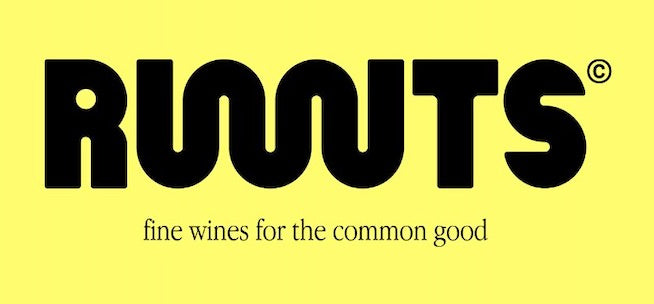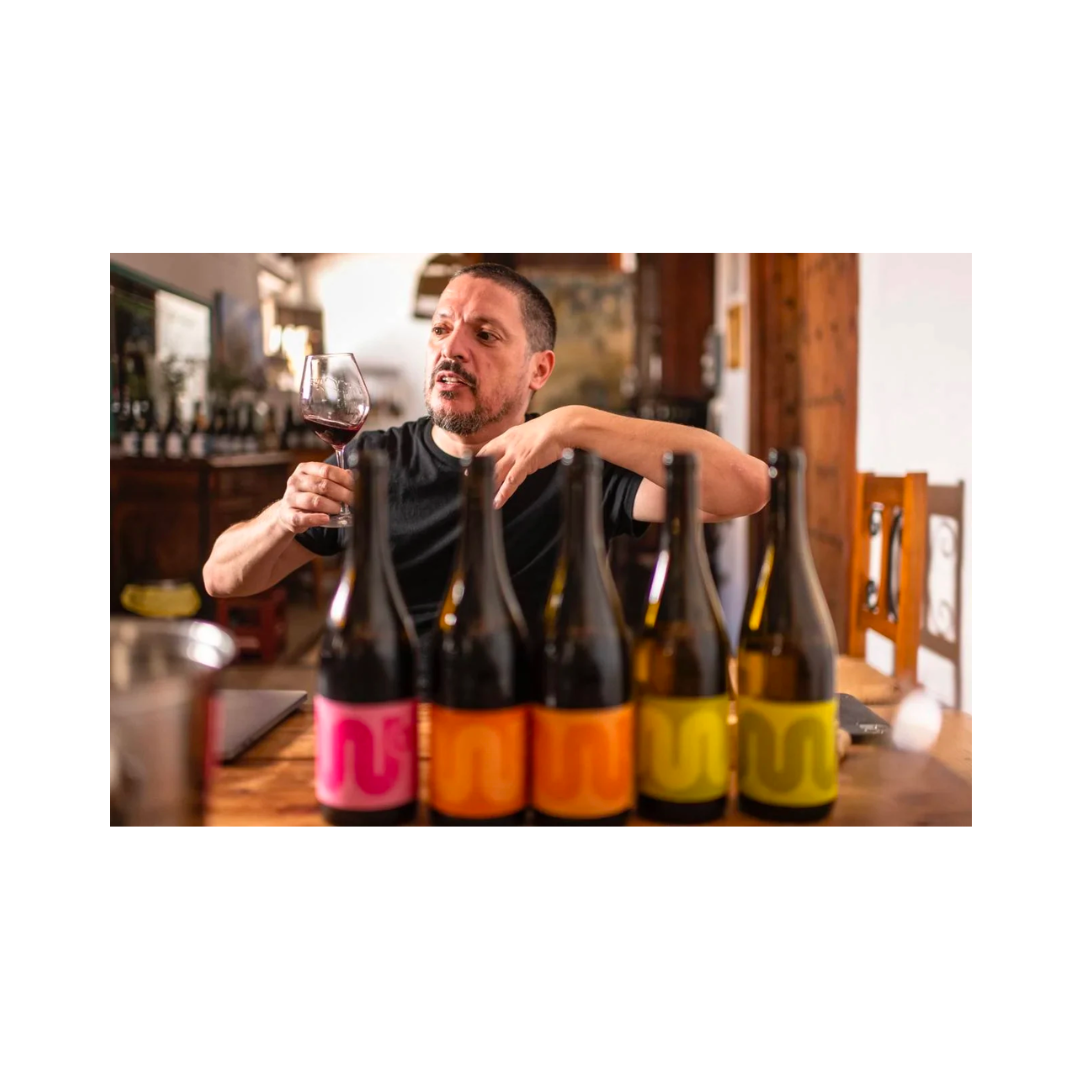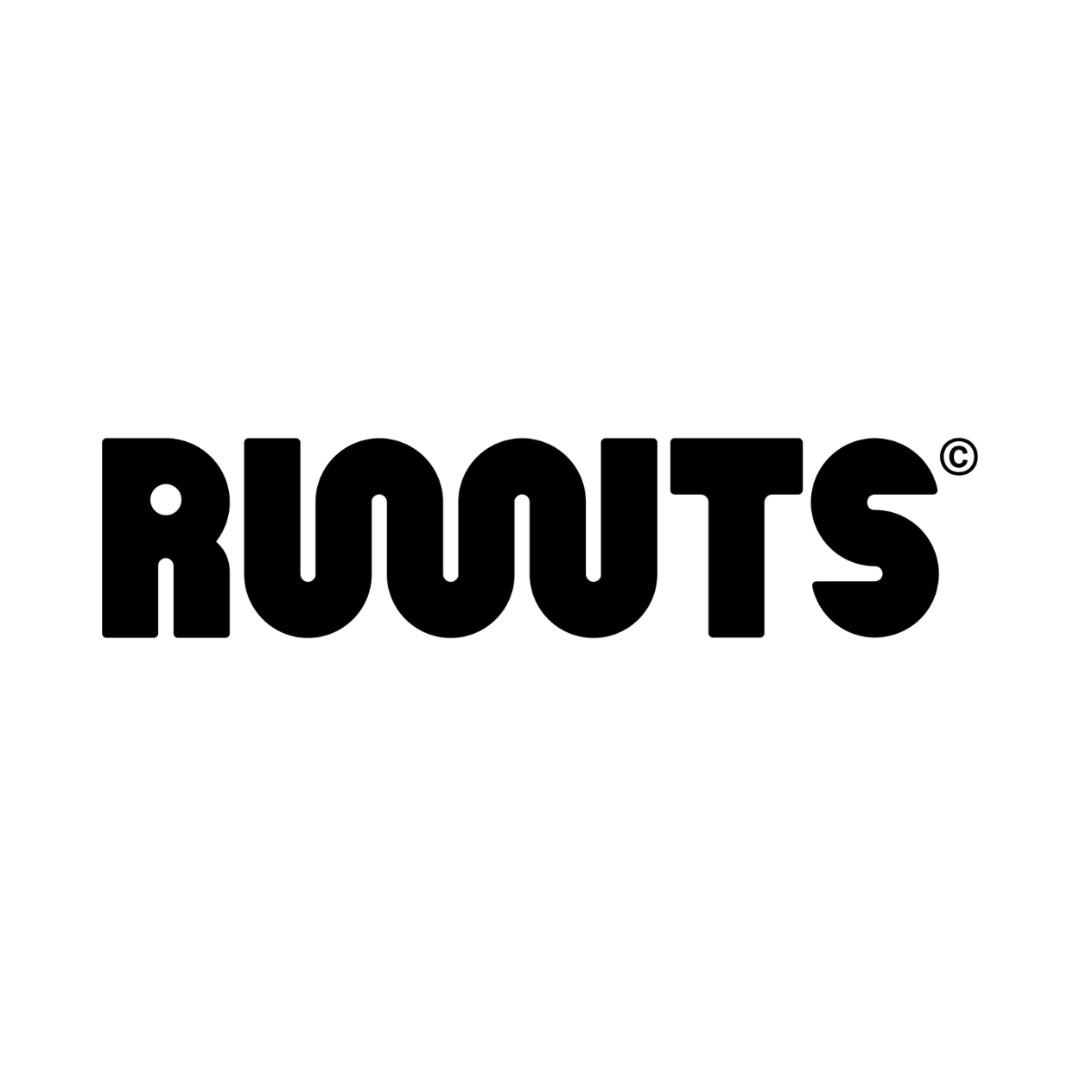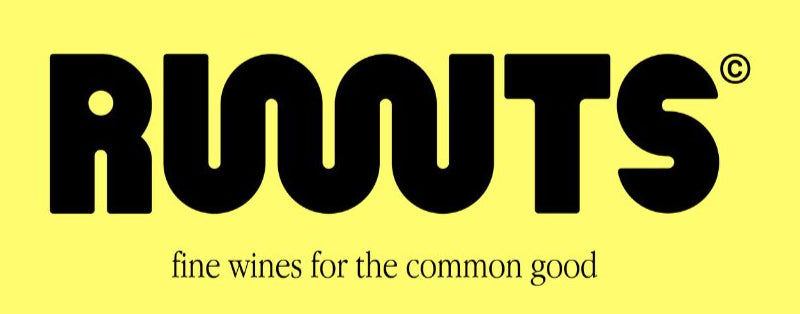(article by Almudena Martín about RUUUTS published in the REPSOL GUIDE on August 6, 2023)
They have only been on the market for a few months and have already fallen in love with great Spanish chefs . Pedro Sánchez ('Bagá'), Jordi Cruz ('Abac)' and Artur Martínez ('Aürt'), among others, already have Ruuuts as their house wines. They have not only been convinced by its quality, but also by its firm fight against climate change which seeks to reduce the carbon footprint of the restaurants themselves.

Making a wine one hundred percent sustainable is not an easy task. Francesc Nicolás, sommelier and founder of Ruuuts , knows this well, having spent three years adjusting the gears of a comprehensive environmental project where everything is measured to the millimeter so that each bottle of wine served on the table is zero emissions . With a reforestation project already underway in a forest in Cantabria, with each case of Ruuuts wine sold, a tree will be planted. Their challenge: reforest 100,000 trees in five years that will help reduce the carbon footprint of restaurants that rely on these wines.

The idea was born in Barcelona, but comes to life in Villanueva de Alcardete, a small town northeast of Toledo where the Recuero family winery is located. That is where, hand in hand, Francesc and the winemaker Jesús Recuero - fifth generation of winemakers - shape six organic viticulture wines from 50-year-old vineyards spread across the limestone slopes of Guzquía, at 800 meters above sea level. Together they walk among the green glass vines that protect the already ripened grapes whose sweetness turns them into authentic treats, a few days before the harvest.


“ The quality of the wine is fundamental in this project ,” emphasizes Francesc, who by playing with various blends defines different profiles designed to be drunk by the glass at different times. “ Pedro Sánchez (' Bagá ', 2 Soles Repsol Guide) will have the two whites (No. 1 and 2) and the sparkling wine (No. 6) in his restaurant as house wines starting in September,” says the Barcelona native, who considers to the chef from Jaén as the godfather of the project for his unconditional support. Also the Catalans 'Abac' by Jordi Cruz (3 Soles Repsol Guide), ' Aürt ' by Artur Martínez (2 Soles Repsol Guide), L' Atelier Dagà Clos, 'Xerta', ' Casanova ' by Andrés Torres; or the Madrid-based 'Ganz' launch Ruuuts in their wineries.

The whites, No. 1 and 2 , are made with the native white varieties (Albillo, Airén and Macabeo), with No. 1 being the most playful, “narrower, sharper and with a high acidity that is good for an after-hours drink.” . The No. 2 goes up one more step with "the Airén as the protagonist that provides fat and wideness in the mouth." In the reds, Garnacha and Tempranillo rule: No. 3 “is very fine, with few tannins, where the Garnacha stands out”; and No. 4 , “it is a canonical red where the Tempranillo that goes through the barrel rules.”


Both No. 5 and 6 are already more gastronomic. “The 5 is a more powerful Crianza, with more body and more alcohol content of Tempranillo, Grenache and Syrah overripe for 12 months in French and American oak barrels; while number 6 is a sparkling wine based on Airén, Macabeo and Chardonnay and 30 months of aging,” explains Francesc who, like a good Catalan, could not resist including some bubbles – here from La Mancha – in Ruuuts. With the European Certification of Organic Agriculture and the V-Label Vegan Wine on its labels, its wines are made with spontaneous fermentation in concrete tanks, without added yeasts and with less than 30 milligrams of added sulfites. “In Spain we do not have legislation on natural wines, but in France, these wines would be naturis ,” he points out.

A box of wine, a planted tree
Francesc gets angry when he sees how sustainability often becomes pure marketing. Hence his obsession with demonstrating that This project is real and tangible, for tying up all the loose ends and avoiding those cracks that could call into question the authentic mission of 'Ruuuts', that of fighting climate change from the world of wine and hospitality. "Everything you do, you have to prove it," he says.

To compensate for all the CO2 emissions, the Catalan thought of a great reforestation plan that would be within Spain - so people could go see it - and contacted Fernando Cervigón, founder of the NGO Trees4Humanity , a Madrid pioneer in developing reforestation plans where plastic pots are replaced with biodegradable ones, in this case made with eucalyptus bark and coconut skin.


And they found the place: Campoo de Yuso, in Santander, where each tree planted responds to a box of six bottles sold by Ruuuts. "If the plans go well, in five years we will have reforested 450 hectares with 100,000 chestnut and oak trees , in addition to the installation of six apiaries and an entire ecosystem of plants that is created around the forest," says the excited sommelier, who has already started working on the first phase: a nursery where they prepare the first seedlings . "During their first 20 years of life, these trees will absorb 117,800 tons of CO2, according to calculations by Winrock International and the Chair of Forest Growth Sciences of the Technical University from Munich. A figure that will increase throughout the life of these oaks and chestnut trees."
The meticulousness to reduce the environmental impact is shown in other details such as the super light glass used for the bottles - 407 grams when the standard is from 600 -, the use of a biodegradable vegetable stopper derived from sugar cane or the absence of capsules that avoid aluminum or plastic. The labels are made of FSC certified paper of sustainable origin, as is the stretchable paper used to wrap the recycled and recyclable cardboard pallets, or the paper boxes and seals, all sustainable with zero use of plastics . “All our activity as a company is measured in the project and compensated with new trees planted: car trips for salespeople, shipping boxes, use of computers, air conditioning, etc.,” he clarifies.

But Ruuuts is not satisfied with offsetting the emissions produced by its wines, it also wants to reduce those of restaurants, invite them to know their carbon footprint - which they calculate in an estimated way with data from the NGO Zero Foodprint (see calculator ) - and encourage them to see how they are reduced monthly with each box of wines they purchase by subscription. A certificate keeps them informed of offset CO2 emissions. The goal: to become subCerO2. Because "every box of wine plants a tree. It's that simple ."
Text: Almudena Martín - Photography: Alfredo Cáliz





Leave a comment
All comments are moderated before being published.
This site is protected by hCaptcha and the hCaptcha Privacy Policy and Terms of Service apply.